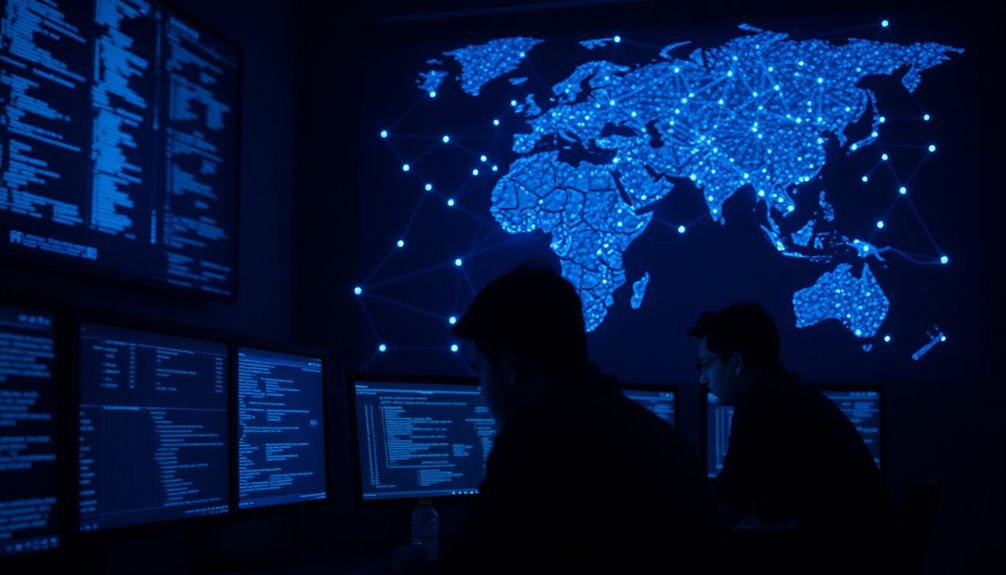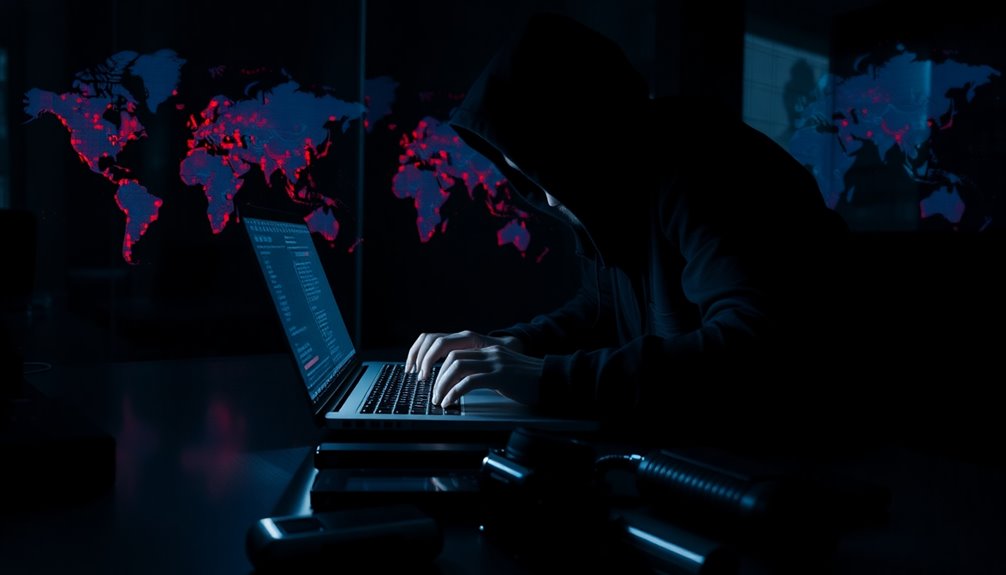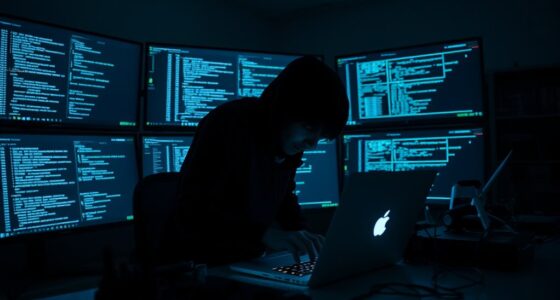
As digital conflicts escalate, you can't ignore the pivotal role of cyber espionage in shaping global dynamics. This covert tactic has become a favored tool for state actors seeking strategic advantages. Countries like Russia, China, Iran, and North Korea have ramped up their cyber operations, targeting everything from critical infrastructure to economic secrets. With advanced technologies like AI enhancing these capabilities, the threat landscape is more complex than ever.
The impact of cyber espionage extends far beyond individual nations. It affects international relations, erodes trust, and destabilizes economies. You might think of the consequences as mere headlines, but the reality is these digital conflicts can lead to significant diplomatic fallout. When trade secrets and intellectual property are stolen, nations find themselves at a competitive disadvantage, straining economic ties and increasing geopolitical tensions.
Cyber espionage disrupts international relations, undermines trust, and heightens geopolitical tensions, turning headlines into significant diplomatic crises.
One of the more insidious aspects of cyber espionage is its ability to disguise malicious intent. Nation-state actors often deploy ransomware, making it look like financially motivated attacks while concealing their true objectives. This tactic allows them to collaborate with cybercriminals, leveraging their tools and expertise to achieve their goals more efficiently. The line between state-sponsored and criminal activity blurs, complicating the response to these threats. Nation-state actors often utilize tools favored by cybercriminals, such as infostealers and command/control frameworks, to enhance their operations.
Artificial intelligence plays a crucial role, too. It not only enhances the effectiveness of cyber operations but also generates disinformation that can manipulate public opinion in targeted countries. By exploiting cloud-based services, cyber actors maintain command and control communications, making their operations harder to detect. Advanced Persistent Threats (APTs), sophisticated tools developed by state actors, enable prolonged espionage campaigns that can go unnoticed for extended periods.
You might wonder how nations like Russia, China, Iran, and North Korea approach these operations. Russia, for example, uses cyber tactics to supplement traditional warfare, directly targeting critical infrastructure. China's focus on stealing economic secrets aims to bolster its global competitiveness. Iran's disruptive cyber attacks seek to impact essential services, while North Korea resorts to cybercrime for revenue generation.
The bottom line is that as digital conflicts escalate, the stakes continue to rise. The lack of clear international regulations complicates efforts to combat cyber espionage, leading to a chaotic environment. Nations need to understand that this isn't just a technological issue; it's a pivotal element in the future of global relations and economic stability. If you ignore the evolving landscape of cyber espionage, you risk being unprepared for the challenges ahead.









